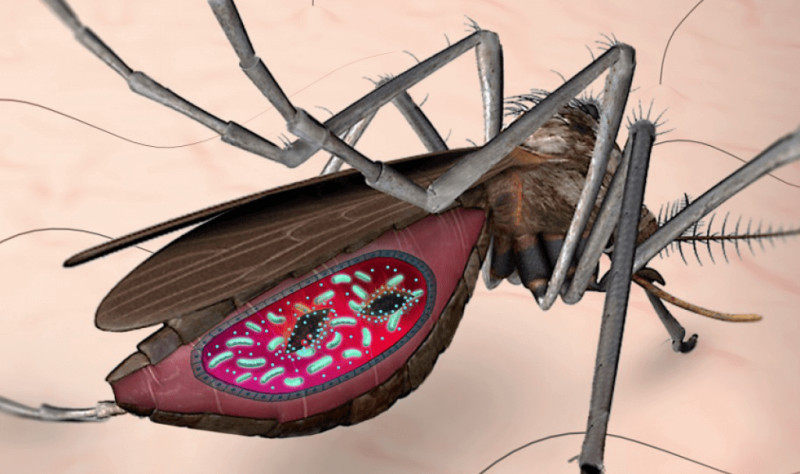Using a bacteria strain that colonizes the mosquito digestive tract and spreads rapidly throughout the populations, scientists have successfully inhibited malaria transmission. They report their findings in Science. Malaria, one of the most devastating infectious diseases worldwide, is caused by Plasmodium parasites that are transmitted through the bite of infected female anopheline mosquitoes.
…
The researchers identified a bacterial strain (AS1) of the genus Serratia isolated from Anopheles mosquito ovaries. Serratia AS1 fed to adult mosquitoes stably colonized the mosquito midgut, crossed the midgut epithelium and colonized the reproductive organs. Importantly, the AS1 bacteria were transmitted from males to females via mating. Moreover, Serratia AS1 was vertically transmitted from female to larval progeny via attachment to laid eggs, primarily on the chorion ridges and floats. These bacteria propagated in the water and were ingested by the larvae that hatch from these eggs. The researchers demonstrated that this bacterium can spread rapidly throughout mosquito populations and persist for multiple subsequent generations. Moreover, Serratia AS1 could be genetically manipulated to secrete anti-Plasmodium effector molecules by use of the Serratia HasA (heme-binding protein) exporting system. The recombinant strains strongly inhibited development of the human malaria parasite Plasmodium falciparum in mosquitoes, but do not have an obvious negative impact on mosquito longevity or fecundity and fertility.
The GLP aggregated and excerpted this blog/article to reflect the diversity of news, opinion, and analysis. Read full, original post: Bacteria Stops Malaria Parasites in Mosquito Gut































